(Yes, I know that isn’t a picture of Unleavened Bread. It’s an inside joke that I will get to later)
In 2023, the Feast of Unleavened Bread begins on Wednesday night at sundown on April 5 and ends on Wednesday, April 12 at sundown.
If you spend any time on social media with people who try to observe the Leviticus 23 “Feasts of the Lord” you might occasionally see the abbreviation ULB associated with the Passover. It’s shorthand for Unleavened Bread and we probably shouldn’t use it as it is strictly “insider” language and therefore confusing to people who aren’t already observing this festival week. I figure that if something is important enough to mention, it ought to be as clear as possible.
Anyway, we see the first mention of this week in Exodus:
Seven days you shall eat unleavened bread. On the first day you shall remove leaven out of your houses, for if anyone eats what is leavened, from the first day until the seventh day, that person shall be cut off from Israel. On the first day you shall hold a holy assembly, and on the seventh day a holy assembly. No work shall be done on those days. But what everyone needs to eat, that alone may be prepared by you. And you shall observe the Feast of Unleavened Bread, for on this very day I brought your hosts out of the land of Egypt. Therefore you shall observe this day, throughout your generations, as a statute forever. –Ex 12:15-17, ESV
These are the basics. Starting at sundown after the 14th day of the first Biblical month of the year (not January, but Nisan in the Spring), people have their Passover supper (which was prepared that day) along with unleavened bread (bread made without leavening/yeast). For the next seven days, until the beginning of the 22nd day of the month, it is not permitted to have any yeast-raised bread in the home (people debate about other types of chemically raised bread, but this is about starting out with the basics and I am not going to delve deeply into controversies and such).
So why am I posting this now? Because if you want to observe this commandment, you need to be aware of your bread purchases and consumption between now and then. Telling you the day before would just make me kind of a jerk, setting you up for failure and discouragement. Ain’t nobody got time for that.
What does that look like this year?
According to the 2023 Rabbinical calendar (which I suggest all new people observe and learn by for at least a few years until you have the basics figured out) which we keep (after years of struggling with the first sliver calendar described in the Mishnah tractate Rosh HaShanah), your Passover preparations will happen on Wednesday, April 5th. The special Seder dinner occurs after sundown on the 5th (or some start it earlier if they have little ones and want a sane experience). If you live in Alaska, ain’t no such thing as sundown so just chose a time. The “Passover” or “Unleavened Bread” festival week will end Wednesday night, April 12.
By this time, all of your leavened bread products need to be gone–croutons, bread, breaded chicken nuggets, breadcrumbs (don’t forget to knock out the toaster real good, but it will be impossible to get it all out and no, I don’t toss out the toaster), frozen bread dough, frozen pre-made sandwiches, etc. Any yeast products–except for things like autolyzed yeast, yeast enzymes, etc. There are things that are called yeast that are not actually yeast as they have no leavening properties. When in doubt, google it. But I am telling you right now, that unless you get very very lucky, you won’t get it all. You will find something. Right now we have a missing bag of croutons. I bought them three weeks ago and they are nowhere. I figure they are hiding somewhere out of sight only to be rediscovered on April 6th. And that happens, and it is okay. Like the sin in our lives, we can’t find everything, but we go looking and do our level best. It may even be that you go out for lunch and totally space what week it is and order a burger. I haven’t done that, but others have. I actually always post a thread on social media where we tell our stories about finding leaven even though we tried and planned and labored to get rid of it all. It’s a comfort to be surrounded by failure lol.
Leaven happens. Get over it and keep on trucking.
So, for those seven days, instead of yeasted bread we are commanded to eat Matzoh. The Bible calls it “bread of affliction” which I suppose is why it tastes rather like cardboard. Think of how saltines taste, and then imagine about ten percent of the flavor. A lot of stores carry boxes of it, and you can even find gluten-free varieties online or make your own (all of which I discussed in Passover Basics). You don’t have to eat a lot of it. Just have a bit. FYI, that week I make my turkey sandwiches using a big kosher dill pickle sliced down the middle as a bread replacement. Or with a lettuce wrap.
There’s really just one more trick to the “ULB” commandments. The first and last days of the week are high sabbaths, which means no working–except what is normally required to cook (which is normally forbidden on the Sabbath) and, of course, care for people. Don’t ever use a Sabbath as an excuse not to change diapers or do a good deed when someone has a serious need. Our family takes off the High Sabbaths, but I have heard that others don’t and many do not take off the second one at all due to unavoidable work constraints, as we aren’t in the Land with the Temple. I am not the High Sabbath police, so this is between you and God.
So, just to sum up, this means no yeast products from Wednesday the 5th at sundown until Wednesday the 12th at sundown, which some years really means not until after the Sabbath as we can’t cook or shop until then anyway. It doesn’t usually happen this way, but sometimes it does. It really isn’t very complicated. Avoid yeasty breads (including sourdough).
Note: two years ago I was asked the question of what to do for children who have sensory processing issues related to texture and can only eat leavened bread and I can tell you that Rabbinical law, though much-maligned and often quite unfairly, is very compassionate and full of grace in this regard. There are always medical exceptions. If that is all your child can eat then feed it to him/her. The rest of the family can eat the Unleavened Bread. It isn’t a feast honoring God if a special needs child or elderly family member is being tortured for reasons they might not even understand.
This is a primer for beginners. I didn’t cover every debate or controversy, nor will I. There are plenty of folks out there who will do that–some simply more qualified than I am and others who are just opinionated and others who are controlling, along with a whole host of other reasons. Bear in mind that a lot of people offering opinions on social media haven’t studied the matter out at all, so don’t allow people to get your head spinning as they try and recruit you into doing things “their way” which they invariably call “God’s way.” Start here if you are new. It can really start this simple and be this casual and free from frustration. If people are causing you a lot of worry and stress, I advise you to just ignore them. One thing at a time, one year at a time. No one, and I mean no one, can possibly “do it right” their first year and frankly, without a standing Temple we can’t do any of this “correctly” anyway. This is all simply a memorial of the first journey out of Egypt, where we thank the Lord for our freedom from slavery–if a person is Jewish then this is a thanksgiving of the exodus out of Egypt and if a person is a “Messianic” Jew or Christian then this has the additional celebration of our exodus out of sin and death via the Cross of Yeshua/Jesus.
Bottom line: I want you to enjoy and find meaning in this. I want you and your kids to learn from it. I want you to celebrate God’s deliverance. My motives really are just as simple as that.
OKAY–editing this on 3/20/2020 because a lot of people have undoubtedly overbought on the bread in light of COVID-19 and are now faced with the decision whether to break the commandment and keep the bread (and I know that many people who criticize the “Rabbinic crowd” for doing just that every year will be among them) or donate it to families that don’t keep ULB. I am not the commandment police–you are going to make your own decisions to do one or the other and you will come up with your own justifications, right? Like we all do when faced with a difficult decision? I hope and pray that this will be an opportunity for the development of humility and repentance for those who have been hardliners with others over this or that, who do decide to hang on to their bread. We all give ourselves a big fat pass on the commandments we do not keep, for whatever reason, all of us. The world isn’t black and white. I won’t condemn anyone for their decisions and I do not believe it is a salvation issue. BUT, but I would hope that anyone who does not rid the house of leaven out of fear for not being able to get bread or flour after the week is done will have a whole lot more compassion for others when the week is over.

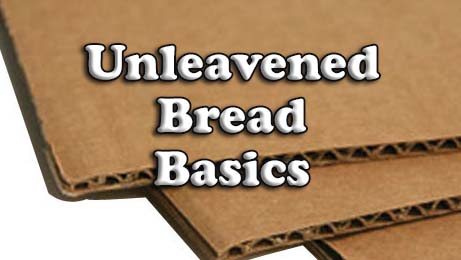


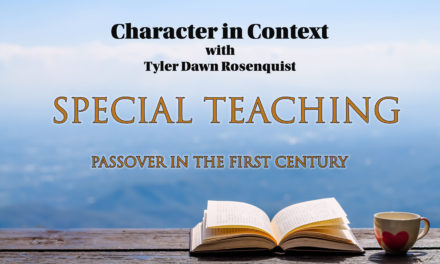
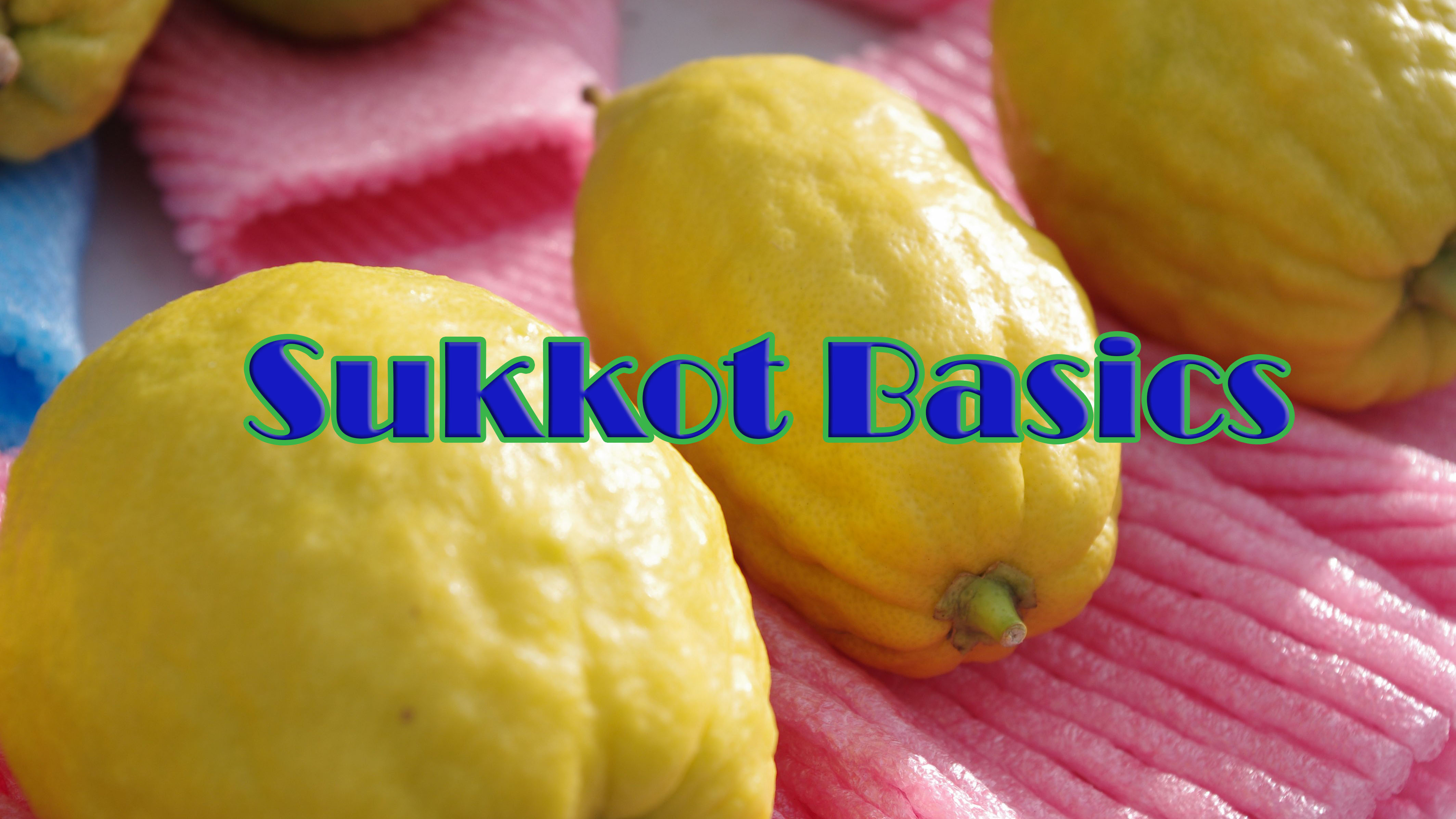
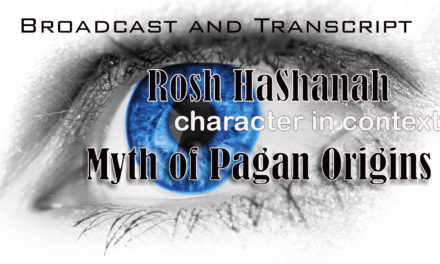
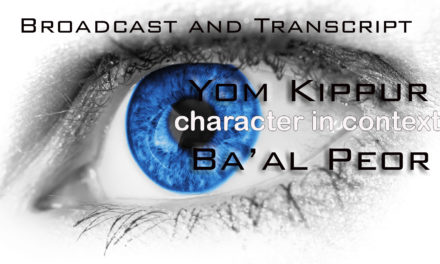














Trackbacks/Pingbacks